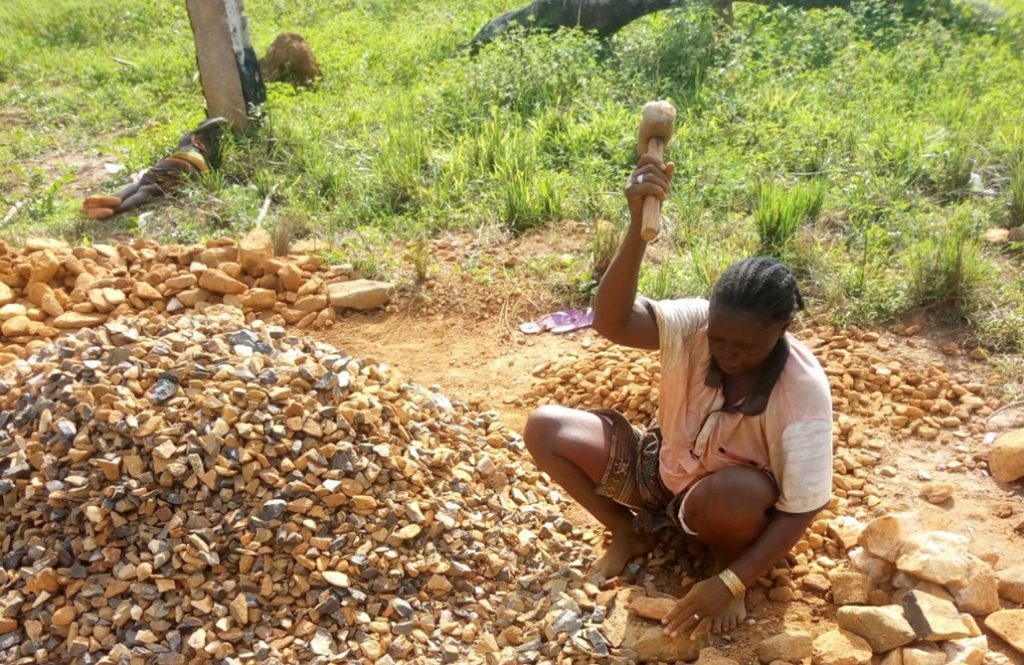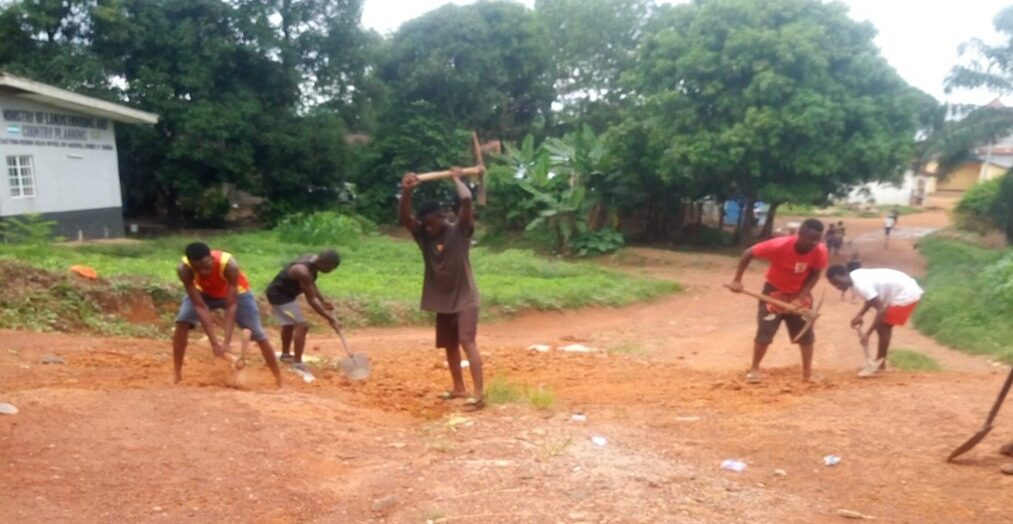Community education and job training
In the landlocked Eastern Region of Sierra Leone, poverty is widespread. “Thousands of families are living in rundown and hazardous shelters, with decaying infrastructure” wrote Crossroads’ partners. “Schools are faced with many challenges. There’s an absence of libraries, poor conditions of classrooms and toilets, insufficient teachers, broken chairs and tables, and so on.” Even where schools are equipped for students, many families can’t afford to keep their children in school beyond a few years. “The majority of families are still living in conditions of extreme poverty,” said our partners. “All family incomes are oriented to the first need: food. In most cases, they can’t afford the cost of school uniforms, shoes, transport or books.” Our partners are working within their communities to help families break out of the poverty cycle so that they can keep their children in school to give them better opportunities. They said that job options for untrained youth are dire. “The majority are unskilled, and not equipped for self-employment, so they do hazardous jobs such as extracting stone to sell, or digging ditches. The money they earn is below one dollar a day.”
To address these deep-seated problems, our partners are running highly successful projects in vocational job training, agricultural training, micro-credit for women and also workshops on preventing HIV, Covid-19 and gender-based violence. We are pleased to be supporting them with a shipment of goods that will help them expand their projects to include things like a computer training centre, youth recreation centres and new primary and secondary schools.

In the communities our shipment will be helping, most of the jobs available for youth without education or training are difficult and low-paid. They may break rocks (above) or dig roads (below), earning just a dollar a day. Goods from this shipment will help more local students access education, and learn practical, vocational skills, so that they can move beyond a dependence on dangerous, low-paid work to survive.
Sallay’s story
Sallay was one of six children, and her ageing parents simply couldn’t afford to keep her in school. “She completely lost hope,” said our partners. That hope was rekindled, though, when she joined a tailoring class our partners were offering to girls like her who had dropped out of school. Today, Sallay has established her own tailoring workshop which generates enough income for her to support her younger siblings to stay in school, provide food for her family, and set herself up in a new, modern apartment. Now, Sallay helps other young women through her own successful business, teaching tailoring to girls who, just like her, were forced to leave school early.
Fatu’s story
Fatu has been working the land since she was a teenager, but the work had been hard and the rewards small. Fatu had no in-depth knowledge about how to use her land to its greatest potential. The income she earnt from her meagre harvests could barely sustain her family. After joining our partners’ agricultural training in a women’s group project, Fatu learnt better ways to farm, and now she successfully grows nutritious, high quality vegetables which provide her family with healthy meals, and a sustainable income. The project has been life-changing for her. With the increased income, she can now keep all her children in school and pay for their books and uniforms. When they’re sick, Fatu can take them to a private clinic and get the medicine and care they need. She has even used the surplus profits to establish her own small business, selling clothes, shoes and bags in the local market. Goods from this shipment will help our partners help more women like Fatu learn the skills to earn a better income and support their families.
(S5533)




